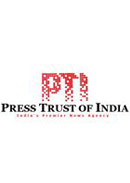Google Pay on Friday said NPCI's decision to cap market share of UPI players at 30 per cent will have implications for millions of users and adversely affect adoption of digital payments in India, even though rivals Paytm and PhonePe downplayed the impact of the decision.
On Thursday, National Payments Corporation of India (NPCI) said a single Third Party App Provider (TPAP) can handle only 30 per cent of overall UPI (Unified Payments Interface) transaction volumes. The cap will be effective from January 1, 2021 and existing players will have a two-year period to ensure compliance.
"Digital payments in India is still in its infancy and any interventions at this point should be made with a view to accelerate consumer choice and innovation. A choice-based and open model is key to drive this momentum," Google Pay and Next Billion User initiatives, India Business Head Sajith Sivanandan said in a statement.
NPCI's announcement has come as a surprise and has implications for hundreds of millions of users who use UPI for their daily payments and could impact the further adoption of UPI and the end goal of financial inclusion, he said.
PhonePe founder and CEO Sameer Nigam said the company has reviewed the recent NPCI circular and assured customers and merchants that "there is absolutely no risk of any UPI transactions on PhonePe failing".
"In fact, NPCI's circular categorically says that the 30 per cent market share cap does not apply to existing TPAPs like PhonePe until Jan 2023. PhonePe remains fully committed to ensuring that there is no customer disruption caused by this circular," he added.
A Paytm spokesperson said UPI is an important part of the country's digital payments ecosystem.
"The transactions volume cap put on various payments apps will make sure that NPCI has de-risked and diversified UPI platform. We are confident that UPI will soon reach the next 2 billion payments in a much shorter time period. NPCI has taken good measures for the growth of UPI by adding various features to diversify and scale its ecosystem," the spokesperson said.
The spokesperson also said that Paytm Payments Bank has multiple options for its customers to store and pay for various services using multiple open payment systems. The bank has 350 million wallet customers, 60 million savings accounts and 100 million customers of UPI on its platform.
With diverse options, customers will get the flexibility and the opportunity to use the best possible payment experience, the spokesperson added.
NPCI, on Thursday, said in view of the recent growth in UPI transaction volumes, it had analysed the risks in the UPI ecosystem and outlined the steps being taken to "address the risks and protect the UPI ecosystem". Existing TPAPs, which are exceeding the 30 per cent cap, will have a period of two years to comply with the requirement in a phased manner, as per NPCI.
According to NPCI, the cap of 30 per cent will be calculated on the basis of the total volume of transactions processed in the UPI during the preceding three months on a rolling basis.
NPCI — which runs the UPI — will issue Standard Operating Procedures (SOPs) regarding capping of transactions in due course.
UPI -- which was launched in April 2016 — processed over 2.07 billion transactions worth Rs 3.86 lakh crore in October, up from over 1.8 billion in the previous month (as per data from NPCI).
Google Pay, Walmart's PhonePe and Paytm are among the TPAP players in the fast-growing UPI ecosystem, amid the sustained push for boosting digital payments in the country.
Generally, TPAPs tie-up with banks at the back-end to add users and process payments for them.
An industry executive, who did not wish to be named, said more clarity will be there once the SOPs are announced.
Players, whose market share is already above 30 per cent, would either have to lose customers or decline transactions to meet the capping requirement that would have a big impact on the business, the executive said.
According to sources, some of these players will meet NPCI executives to raise their concerns.
Recently, PhonePe announced crossing the 250 million-registered users milestone and over 100 million Monthly Active Users (MAU), and had 835 million UPI transactions in October with a market share of over 40 per cent.
Google had 67 million monthly active users in September last year, and on the merchant side, it had over three million active merchant's data for June 2020. Google Pay has not shared any updated stats since September 2019.
However, BharatPe co-founder and CEO Ashneer Grover described the capping move as a "well calculated" one.
"On getting 20 million users, WhatsApp could end up just shy of 30 per cent market share. Google Pay and PhonePe will also automatically get diluted down to 30 per cent. So it is a very well thought move by NPCI to ensure no single TPAP can dictate terms on UPI," he said.
WhatsApp— which has 400 million users in India - has now been allowed by NPCI to start its payments service in the country in a "graded" manner, starting with a maximum registered user base of 20 million in UPI. Facebook-owned WhatsApp on Friday rolled out its payment service after running a pilot project for about two years.


